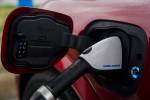Hit the road, tax
Just because something might seem fair upon initial review doesn’t necessarily make it so. That’s certainly the case with the vehicle miles traveled tax.
As reported by the Review-Journal’s Sean Whaley last week, Gov. Brian Sandoval said Monday he wants a study of road funding options completed in time for the 2015 Legislature, and he wants the vehicle miles traveled tax examined as part of the review.
As Mr. Whaley and a June 20 Review-Journal editorial pointed out, cars have become so fuel-efficent — particularly hybrids — that governments are collecting less and less fuel tax revenue even as highway use increases.
File that under unintended consequences, as government at all levels has pushed for better fuel economy only to later acknowledge that fuel tax receipts were taking a beating, leaving more and more badly needed road improvement projects unfunded.
Enter the idea for a vehicle miles traveled tax, which would hit drivers based on how much they drive, not on how much fuel they buy. Whatever rate is levied would replace the state’s 17.65 cent-per-gallon fuel tax, but the federal gasoline tax of 18.4 cents per gallon would continue, and it’s unclear whether counties also would adopt a mileage-based tax or stick with fuel taxes collected at the pump.
A vehicle miles traveled tax certainly would reverse the trajectory of road revenues. Depending on your perspective, it might even be fair. From our point of view, however, this tax idea needs to hit the highway.
First, there would be new costs involved in creating such a system, and drivers stand to get hit by all of them. Some type of monitoring device would have to be installed inside every vehicle in the state, and that has to be paid for, either through the tax or a fee, or through a mandate that consumers purchase the device and have it installed. Or drivers would have their vehicle mileage verified, perhaps at a licensed emissions inspection business.
Setting aside the potential privacy infringements of such a device, the money outlay by taxpayers before even a mile has been traveled is reason enough to can this proposal.
Second, abolishing the state fuel tax in favor of a vehicle miles traveled levy effectively would exempt out-of-state visitors from the tax, and it would tax Nevada vehicles for miles they drive outside the state. Tourists, especially those who drive in from California, purchase a lot of fuel here. Unless Nevada enters a wildly complex compact with every neighboring state — assuming they all switch to a vehicle miles traveled tax, as well — there’s no way to include out-of-state vehicles and trucks in such a system. That means Nevadans would assume an even higher tax burden.
The Legislature authorized the Clark County Commission to increase the county’s current 9 cent-per-gallon fuel tax and index it to inflation — something the commission will take up soon and that we support — and a pair of fuel tax questions will appear on the 2016 ballot. That’s enough for now. If vehicle technology gets to the point where fuel efficiency truly decimates tax collections, the state should consider applying an additional registration fee on high fuel-economy vehicles, as other states are now doing.
The fuel tax, while flawed, is in fact a fair, efficient way to fund road improvements. The vehicle miles traveled tax proposal, on the other hand, is running on empty.























